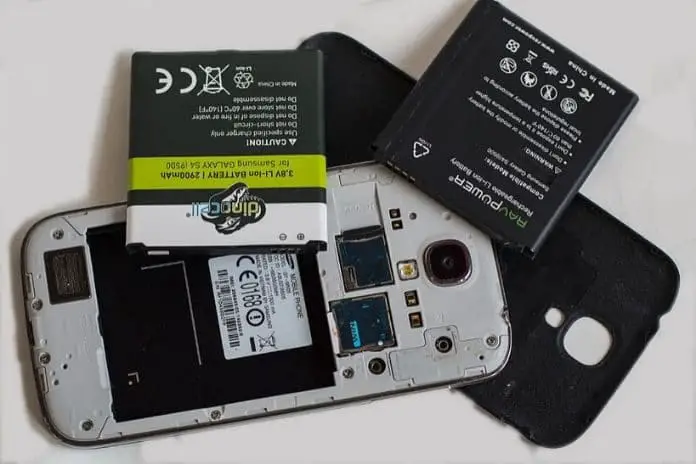
In the world of battery manufacturing or the energy storage industry, there’s a continuous pursuit of new innovations and state of the art advancements. Companies battling for supremacy within this tough and fierce industry are relentlessly doing a lot of research and testing to come up with better power cell technology.
This leads to lithium-based battery technology that we are currently using today. So far, lithium-ion batteries are the latest proven and trusted working power cells widely used in various industries and applications. However, battery experts are wondering whether it will be the last or a new tech will emerge in the coming future.
So, is there a better battery than lithium-ion? To give this question a quick and definitive answer, I say that, as of today, lithium-based batteries are considered to be the best. The power cell technology used with these lithium-ion batteries makes them superior to their counterparts is far too good, allowing them to offer a lot of exceptional qualities.
A lithium-ion cell is considered as the best technology today because comparing it to other cell technologies; it has higher energy density, more battery cycles, a faster charging rate, and very low upkeep requirements. A lithium-ion battery is also a lot safer to use, and it is more eco-friendly, not to mention that it also features a more compact and slimmer design.
However, these benefits come at a higher cost, making it more expensive than the prior battery technologies. But a lot of experts think that the cost of producing lithium-ion cells is worth it, making it reasonable. So for now, I can say that there’s no existing battery better than lithium-ion.
However, there are plenty of rumors that there are several types of cells that scientists across the globe are working on that can surpass the lithium technology’s greatness. Let’s just hope that we are lucky enough to be around when they emerge.
Finding your way here reading this article would mean that you are trying to be updated in the battery industry. Trying to see if there’s a new revolutionary technology that can offer more than a lithium-ion battery can deliver.
However, you already got your answer a while ago, but encourage you sticking for a bit cause I am going to talk about more about this powerful battery technology and some of the new ones under the works.
Battery Technologies Considered Before According to News
As I answered the question I highlighted above, I mentioned something about new cell technologies under the works. State of the art power cell innovations using different materials with a lot more to offer than the lithium-based ones we use today.
Some of these potential alternatives to lithium-based batteries are too power that makes them too good to be true, but some of them also seem to have realistic claims.
Let’s find out and check them out!
1. Ryden Dual Carbon Power Cell Technology
One of the latest news about upcoming new battery innovations was released in Japan, and it was way back several years ago. It was said that Power Japan Plus, a famous Japanese company, had launched a new battery technology referred to as Ryden Dual Carbon.
A power cell technology that uses carbon materials that makes it more environmentally friendly and more sustainable alternative.
This revolutionary battery innovation is said to charge a lot faster than the lithium-based ones, and it also can last longer, offering up to 3000 battery cycles. This technology also claimed that these batteries are much more eco-friendly, and they can also be built from the facilities where their lithium-ion counterparts are also made.
However, despite the great statistics it offers, the battery technology struggled to make it into the market due to undisclosed reasons. Too bad that we haven’t tried the technology.
2. Sodium-Based Battery Technology (Sodium-Sulphur)
Another resounding battery innovation that surfaced was the sodium-based battery technology. This kind of power cell engineering was said to be formulated way back in the eighties due to the search for a cheaper way for producing batteries.
Sodium is one of the most common elements on our planet, and incorporating it with the energy storage advancements would make battery production a lot cheaper.
Sodium-based power cells were also thought to be seven times better than their lithium-based counterparts. The technology also claimed that it could store five times the amount of energy the lithium technology can store. However, due to the volatile qualities of the materials it uses, the technology never made it to the market.
3. Hydrogen Fuel Power Cell Technology
Finally, the use of hydrogen and incorporating it with the process of producing batteries has also been studied for so long. Due to its abundance, a hydrogen-based battery technology surfaced long before. The technology would be much greater than the lithium-based technology of today due to the advantages it offers.
It was said that hydrogen-based power cells would have a ten times greater energy to weight ratio than the lithium technology, due to the lighter hydrogen. Hydrogen batteries would also have a more substantial range than lithium cells due to their versatility.
Power cells based in hydrogen would also be environmentally friendly compared to our lithium batteries today.
Nonetheless, despite those exceptional features, the technology was unable to make it to the market due to a lot of reasons. One of them being the high risk of starting fires and explosions due to the volatility of materials. Then the expensive cost of storing hydrogen and the difficulty of producing and transporting its significant components.
Those were the battery technologies that nearly threatened the supremacy of today’s lithium-ion power cell innovation. Having a closer look at each of them shows that all of them haven’t made a significant market breakthrough due to two major reasons.
It’s either the extremely expensive cost of production or the dangerous nature of the major components. This makes the lithium technology a much better option.
3 Reasons Why the Lithium-Ion Battery Technology Superior
Compared to the three cell technologies mentioned earlier and including the other types of batteries that made it through the market. Lithium-ion batteries still emerged victorious to be considered the best type of power cell today due to several key features, apart from making a significant breakthrough and penetrating the tough market.
The lithium technology also has plenty of exceptional features that make it far better than its counterparts in the market.
Let’s take a look at these qualities!
1. Safer and Low Risk Which is Ideal for Mass Production
Although rare that makes it expensive, comparing it from the raw and major materials of the three technologies mentioned above, lithium is more suitable for production. This is because it has low volatility, and the risk of it starting fires or explosions is minimal.
By comparing the three mentioned cell technologies against lithium, it clearly shows that this safety net is one of the main reasons why it had broken through the market and left the competition behind.
In a business sense, spending a bit more in production is better than spending less but risking the production line to fires and any other incidents. That’s what the companies opted for, making the lithium tech the more logical choice.
2. High Energy Density, Greater Output, and Exceptional Longevity
Now, comparing the lithium battery technology to the ones that made it through the market and available today. Lithium-ion cells are far more superior due to its ability to deliver greater power output and its exceptional life expectancy.
The battery technology also a very high energy density, which is considered as its greatest advantage. With its huge capacity for storing energy, this allowed cell manufacturers to build compact and smaller batteries.
It then eventually lead to the cordless tools innovations and a lot sleeker phones and devices that we use today.
3. Faster Charging Rate and Very Low Self-Discharge Rating
Another asset that makes the lithium-ion battery technology the best and the ideal power cell innovation today is its low self-discharge rating. Along with the high-speed charging rate that allows it to be recharged a lot faster, it makes it the ideal choice of power options for portable devices.
This is why almost all of the gadgets and compact battery-powered electronic devices we are using today use lithium-based battery packs. It also makes a logical sense because these batteries are designed to tolerate long storage periods since it will only lose a little amount of charge.
The list above only enumerated the obvious and the most common reasons why lithium-ion batteries stand tall among its other counterparts. However, if you ask a battery expert, you will have a few other reasons not included on the list you’ve just gone through.
Nonetheless, I think those are enough to establish the claim of lithium batteries being superior.
Final Thoughts
So, if we are going to ask the question again, is there a better battery than lithium-ion? The answer will still be yes. Up to date, lithium-ion batteries are the best power cell that exists, and no other type has come to challenge it yet.
However, due to the tireless efforts of scientists and battery manufacturers, the possibility of a new battery technology that will surpass lithium batteries is still great.





